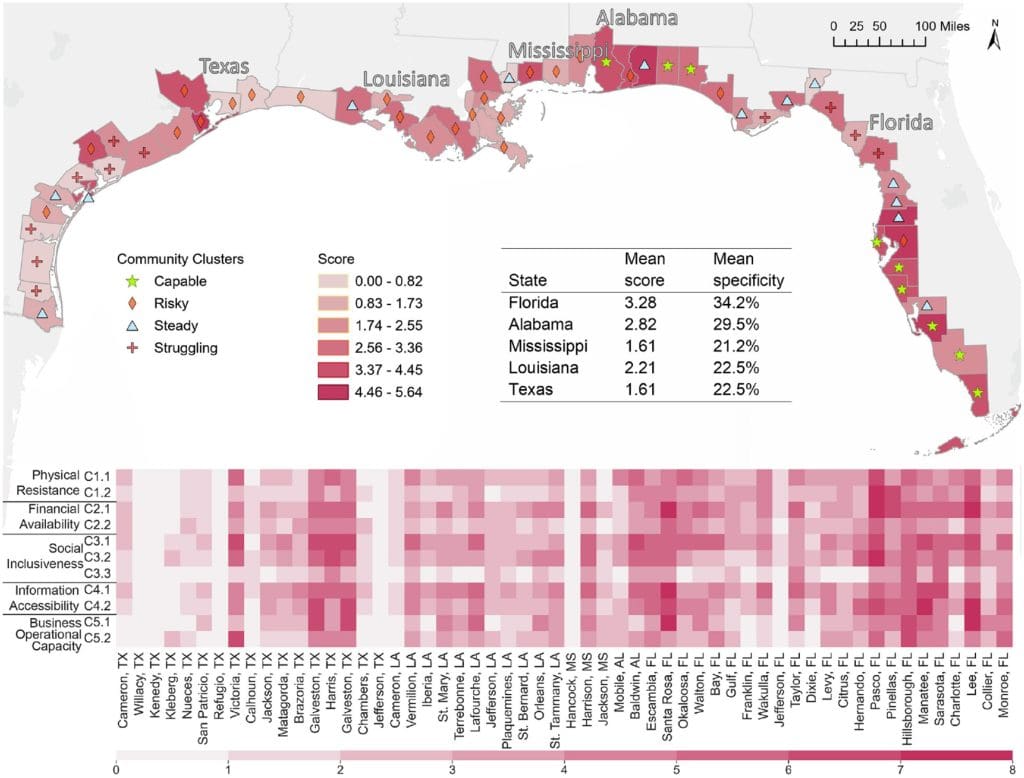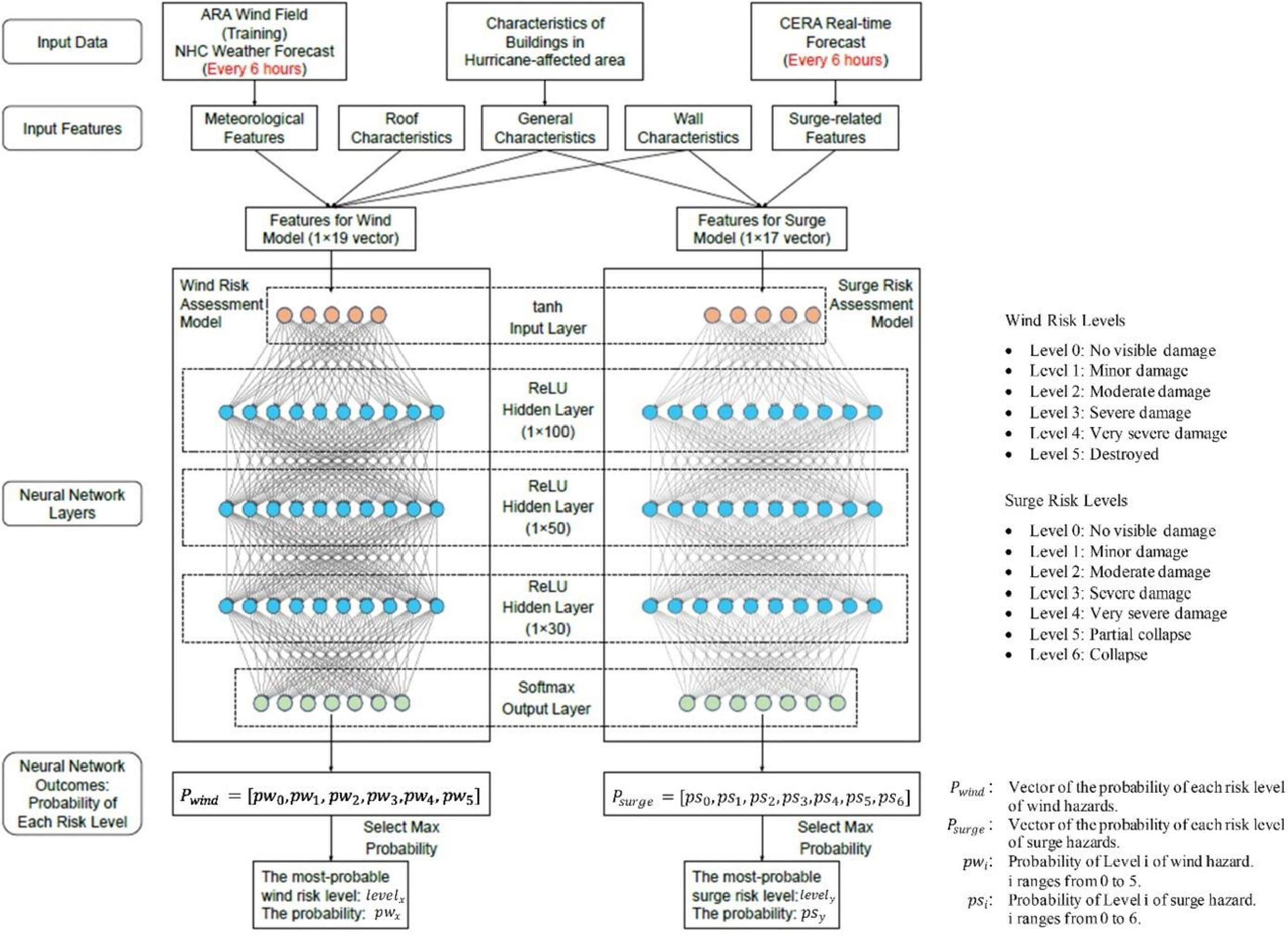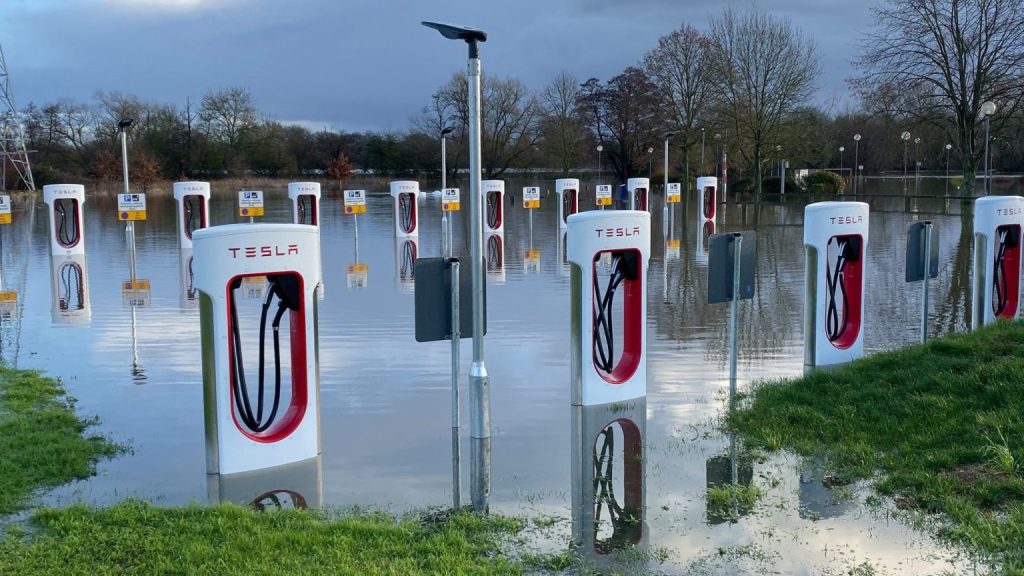URBAN AGILITY AND RESILIENCE LAB
Director: Dr. Yan Wang
OUR PROGRAM
Welcome to the Urban Agility and Resilience Lab! The UAR Lab is the research hub of exploration and creativity for resilient, safe, smart and healthy built environments. Dr. Yan Wang is the founder and director of the UAR lab at the University of Florida.
Dr. Wang is an Assistant Professor in the Department of Urban and Regional Planning and the founding faculty member of the Florida Institute for Built Environment Resilience (FIBER) at the University of Florida. Her research concerns urban resilience to hazards and disruptive technologies. Her team develops AI-enabled systems for disaster response and risk communication, models human-information-environment interactions under extreme events, explores evidence-based resilient urban forms, and prepares a smart/adaptive environment for disruptive technologies to build smart and resilient cities.
Current research projects of the UAR lab focus on investigating the complexity and dynamics of coupled human-environment systems, developing an intelligent emergency detection and tracking system, visualizing and modeling urban dynamics with geo-visualization techniques, and crowd-sourced data-informed planning for smart, resilient cities.
The diverse expertise of the lab members includes applied artificial intelligence, big data analytics, complex network analysis, GIS, natural language processing, computer vision, human mobility analysis, real-time/streaming data processing, database management, agent-based modeling, system dynamics, urban modeling, among other advanced urban analytics techniques.
PROJECTS
Thrust 1. Resilience Intervention Through Adaptive and Equitable Spatial Planning
Thrust 2. Resilience Intervention Through Urban Crisis Informatics
Thrust 3. Climate Change and Population Health
Anticipating Vulnerable Population’s Risks Under Climate Change Scenarios
- Lorem ipsum dolor sit amet, consectetur adipiscing elit, sed do eiusmod tempor incididunt ut labore et dolore magna aliqua. Ut enim ad minim veniam, quis nostrud exercitation ullamco laboris nisi ut aliquip ex ea commodo consequat. Duis aute irure dolor in reprehenderit in voluptate velit esse cillum dolore eu fugiat nulla pariatur.
OUR TEAM

Yan Wang
UAR Lab Lead
•Dr. Wang’s research centers on urban resilience, employing a systematic framework that integrates human, environment, and disruptions. Through empirical studies and modeling, she explores human-centered interventions for enhancing urban resilience and informing climate adaptation through three research thrusts: spatial planning, crisis informatics, and population health.
Current Team Members
Shangde Gao
Ph.D. Candidate
Ziyi Guo
Ph.D. Candidate
Silas Achidago
Master’s Student
Graduated Students and Previous Research Team Contributors
Haiyan Hao
Ph.D. Candidate
Fang Yao
Ph.D.
Changjie Chen
Ph.D.
Lian Plass
Master’s Student
NEWS
Keeping electric vehicle charging services strong during hurricane season is key in Florida
A recent study led by researchers from the University of Florida’s College of Design, Construction…
Dr. Yan Wang Receives Two Grants from the NSF
Dr. Yan Wang is the director of the Urban Agility and Resilience Lab at the…
PUBLICATIONS
2024
Guo, Z., Wang, Y.*, Steiner (2024) When Climate Mitigation Meets the Needs of Adaptation: Closing the Resilience Gap for EV Charging Services in Hurricane-Prone Areas. Journal of Management in Engineering. (Accepted)
Hao, H & Wang, Y.* (2024) The Emerging ‘Evident’ Role of Climatic Risk on Migration: A Study of Four U.S. Metropolitans. Climatic Change. 177, 36. https://doi.org/10.1007/s10584-024-03687-5. (Q1 in Atmospheric Science/Global & Planetary Change; IF: 5.3)
Wang, R., Wang, Y. & Li, N.* (2024) Revealing Disaster Dynamics and Disparities in Urban Facility Accessibility Using an Improved Utilization-Based Metric. Cities. 144, 104636. DOI: 10.1016/j.cities.2023.104636 (Q1 in Urban Studies and Development; IF: 6.7)
Guo, Z., Wang, Y.* (2024) Benchmarking Plans for Community-based Small Businesses Resilience across U.S. Gulf Coast. Journal of Planning Education and Research. 0(0). https://doi.org/10.1177/0739456X231213360 (Q1 in Urban Studies and Planning; IF: 4.0)
2023
Gao, Z., Wang, Y.* (2023) Anticipating older populations’ health risk exacerbated by compound disasters based on mortality caused by heart diseases and strokes. Nature Scientific Reports. 13, 16810. https://doi.org/10.1038/s41598-023-43717-3. (Q1 in Multidisciplinary; IF: 4.9).
Guo, Z. & Wang, Y.* (2023) Anticipatory Planning for Equitable and Productive Curbside Electric Vehicle Charging Stations. Sustainable Cities & Society. 99, 104962. DOI: https://doi.org/10.1016/j.scs.2023.104962 (Q1 in Planning and Civil Engineering; IF: 11.7; Acceptance Rate: 10%)
Hao, H. & Wang, Y.* (2023). Modeling Dynamics of Community Resilience to Extreme Events with Explainable Deep Learning. Natural Hazards Review, 24(2), 04023013. DOI: https://doi.org/10.1061/NHREFO.NHENG-1696 (PrePrint)(Q1 in Social/Environmental Science; IF: 3.723)
Hao, H., Wang, Y.*, Du, L., & Chen, S. (2023) Enabling Smart Curb Management with Spatiotemporal Deep Learning. Computers, Environment and Urban System. 99, 101914. DOI: https://doi.org/10.1016/j.compenvurbsys.2022.101914. (Q1 in Urban Studies & Geography; IF: 6.454)
2022
Gao, S., Wang, Y.*, & Webster, G. (2022) Causal Modeling of Descriptive Social Norms from Twitter and the Physical World on Expressed Attitudes Change: A Case Study of COVID-19 Vaccination, Cyberpsychology, Behavior, and Social Networking. DOI: https://doi.org/10.1089/cyber.2022.0153. (Q1 in Social Psychology, Communication and Human-Computer Interaction; IF: 6.135).
Hao, H., Wang, Y.*, & Kang, S. (2022) Examining “Digital” Vulnerability to Flooding among Subsidized Housing Residents in Florida. International Journal of Disaster Risk Reduction. doi: https://doi.org/10.1016/j.ijdrr.2022.103302 (link) (Q1 in Safety Research; IF 4.320)
Gao, S. & Wang, Y.* (2022) Explainable Deep Learning Powered Building Risk Assessment Model for Proactive Hurricane Response. Risk Analysis. pp.1-13, doi: 10.1111/risa.13990. (Q1 in Safety/Risk Research; IF: 4.302) (link)(preprint)
Wang, Y.*, Hao, H. & Wang, C. Preparing Curbside for Increasing Mobility-on-Demand using Data-Driven Agent-Based Simulation: Case Study of Downtown City of Gainesville, Florida. ASCE Journal of Management in Engineering. DOI: 10.1061/(ASCE)ME.1943-5479.0001021. (link)(preprint)(Q1 in Engineering; IF 6.7)
Hao, H. & Wang, Y.* Disentangling Relations Between Urban Form and Urban Accessibility for Resilience to Extreme Weather and Climate Events. Landscape and Urban Planning. 220 (2022). 104352. DOI: 10.1016/j.landurbplan.2022.104352. (link) (Q1 in Environmental Science; IF 6.142; Ranking 2 out of 43 in Urban Studies)
Guo, Y., Song, Y.*, Cao, L., Wang, Y. & Li, Y. (2022) Understanding the Formation of City-HSR Network: A Case Study of Yangtze River Delta. Transport Policy. 116, 315-326. DOI: 10.1016/j.tranpol.2021.12.014. (Q1 in Geography, Planning and Development; IF 4.674)
2021
Gao, S. & Gao, W. (2021) Investigating Dynamic Relations Between Factual Information and Misinformation: Empirical Studies of Tweets Related to Prevention Measures during COVID-19. Journal of Contingencies and Crisis Management. DOI: 10.1111/1468-5973.12385. (Q1 in Management Information System; IF 4.4)
Ma, R., Wang, T., Wang, Y., & Chen, J.* (2021). Tuning urban microclimate: A morpho-patch approach for multi-scale building group energy simulation. Sustainable Cities and Society, 103516. (link) (Q1 in Geography, Planning and Development; IF: 7.587; ranking it 4 out of 66 in Construction & Building Technology; Acceptance Rate 15%)
Wang, Y.*, Gao, S., Li, N, & Yu, S. (2021) Crowdsourcing the perceived urban built environment via social media: The case of underutilized land. Advanced Engineering Informatics. 50. 101371. DOI: https://doi.org/10.1016/j.aei.2021.101371. (link) (Q1 in Artificial Intelligence and Information Systems; IF 5.603, ranking it 10 out of 91 in Engineering, Multidisciplinary)
Hao, Haiyan & Wang, Yan* (2021) Assessing Disaster Impact in Real Time (ADIR): A Data-Driven System Integrating Human, Hazards, and the Built Environment. ASCE Journal of Computing in Civil Engineering. doi: 10.1061/(ASCE)CP.1943-5487.0000970. (link) (Q1 in Civil and Structural Engineering; IF 5.107).
Wang, R., Li, N. & Wang, Y. (2021) Does the Returners and Explorers Dichotomy in Urban Human Mobility Depend on the Observation Duration? An Empirical Study in Guangzhou, China. Sustainable Cities and Society. 102862.doi: https://doi.org/10.1016/j.scs.2021.102862. (link) (Q1 in Geography, Planning & Development)
Gao, Shangde & Wang, Yan* (2021) Assessing the impact of geo-targeted warning messages on residents’ evacuation decisions before a hurricane using agent-based modeling. Natural Hazards. DOI: 10.1007/s11069-021-04576-1. (link)
Wang, Y*, Hao, H. & Platt, L. (2021) Examining Risk and Crisis Communications of Government Agencies and Stakeholders during Early-Stages of COVID-19 on Twitter. Computers in Human Behavior. DOI: https://doi.org/10.1016/j.chb.2020.106568 (RG preprint)(link) (Q1 in Human-Computer Interaction; IF 6.829, ranking it 3 out of 90 in Psychology, Experimental)
2020
Yao, F. & Wang, Y.* (2020) Towards Resilient and Smart Cities: A Real-Time Urban Analytical and Geo-Visual System for Social Media Streaming Data. Sustainable Cities and Society. 102448. doi: https://doi.org/10.1016/j.scs.2020.102448 (RG preprint)(link) (Q1 in Geography, Planning & Development)
Hao, H. & Wang, Y.* (2020) Leveraging Multimodal Social Media Data for Rapid Disaster Damage Assessment. International Journal of Disaster Risk Reduction. 51, 101760. doi: https://doi.org/10.1016/j.ijdrr.2020.101760 (RG preprint)(link)
Yao, F. & Wang, Y.* (2020) Domain-Specific Sentiment Analysis for Tweets during Hurricanes (DSSA-H): A Domain-Adversarial Neural-Network-Based Approach. Computer, Environment and Urban System. 83, 101522. doi: https://doi.org/10.1016/j.compenvurbsys.2020.101522. (RG preprint)(link)
Wang, Y.*, Hulse, D., Von Meding, J., Brown, M. & Dedenbach, L., (2020)Conceiving Resilience: Lexical Shifts and Proximal Meanings in the Human-Centered Natural and Built Environment Literature from 1990 To 2018. Developments in the Built Environment. 100003. DOI: https://doi.org/10.1016/j.dibe.2019.100003
Brown, M., Murtha, T., Wang, L., & Wang, Y. (2020) Mapping Landscape Values with Social Media. Journal of Digital Landscape Architecture. pp. 542-548. DOI: 10.14627/537690055
2019
Wang, Y.*, Taylor, J.E. & Garvin, M.J. (2019) Measuring Resilience of Human-Spatial Systems to Disasters: Framework Combining Crowdsourced Spatial-Network Analysis and Fisher Information. ASCE Journal of Management in Engineering. 36(4), 04020019.
Wang, C., Delport, J., & Wang, Y. (2019). Lateral motion prediction of on-road preceding vehicles: a data-driven approach. Sensors, 19(9), 2111. https://doi.org/10.3390/s19092111
2018
2017
2016
Pre-Prints
[1] Guo, Z. & Wang, Y.* Benchmarking Plans for Community-based Small Businesses Resilience across U.S. Gulf Coast. DOI: 10.31235/osf.io/675ty.
[2] Gao, S., Wang, Y.*, & Thai, M. T. (2023) Investigating the Dynamics of Social Norm Emergence within Online Communities. arXiv preprint arXiv:2301.00453.
[3] Gao, S., Wang, Y.*, Gao, W. (2021) Can Predominant Credible Information Suppress Misinformation in Crises? Empirical Studies of Tweets Related to Prevention Measures during COVID-19. arXiv preprint arXiv: 2102.00976.
Peer-Reviewed Conference Papers
2022
13. Hao, H., & Wang, Y.* (2022) Smart Curb Digital Twin: Inventorying Curb Environments using Computer Vision and Street Imagery. 2nd Annual International Conference on Digital Twins and Parallel Intelligence (IEEE DTPI 2022). Smart City Digital Twins Convergence (by invitation only) Boston, U.S.
12. Hao, H., Wang, Y.*, & Wang, Q. (2022) Simulating Urban Population Activities under Extreme Events with Data-Driven Agent-Based Modeling. 2022 ASCE’s Construction Institute and Construction Research Council. The joint conference will be held in Arlington, VA; March 9-12, 2022. (link)
11. Gao, S., Wang, Y.*, & Wang, Q. (2022) Household-Targeted Hurricane Warnings for Effective Evacuation: Case Study of Hurricane Irma in North Miami Beach. 2022 ASCE’s Construction Institute and Construction Research Council. The joint conference will be held in Arlington, VA; March 9-12, 2022. (link)
2021
10. Gao, S., Wang, Y.* & Platt, L. (2021) Modeling U.S. Health Agencies’ Message Dissemination on Twitter and Users’ Exposure to Vaccine-related Misinformation Using System Dynamics. The 18th International Conference on Information Systems for Crisis Response and Management (ISCRAM 2021). (pp. 333–344). Blacksburg, VA (USA): Virginia Tech.(preprint) (ISCRAM Digital Library)
9. Wang, Y.*, Wang, Q. & Taylor, J.E. (2021) Loss of Resilience in Human Mobility across Severe Tropical Cyclones of Different Magnitudes. The 18th International Conference on Information Systems for Crisis Response and Management (ISCRAM2021).(pp. 755–765). Blacksburg, VA (USA): Virginia Tech. (preprint) (ISCRAM Digital Library)
2020
8. Haiyan Hao, & Yan Wang*. (2020). Hurricane Damage Assessment with Multi-, Crowd-Sourced Image Data: A Case Study of Hurricane Irma in the City of Miami. In Amanda Hughes, Fiona McNeill, & Christopher W. Zobel (Eds.), ISCRAM 2020 Conference Proceedings – 17th International Conference on Information Systems for Crisis Response and Management (pp. 825–837). Blacksburg, VA (USA): Virginia Tech. (link) (preprint)
7. Brown, M., Murtha, T.*, Wang, L. & Wang, Y. (2020) Mapping Landscape Values With Social Media. Digital Landscape Conference (DLA 2020).
2019
6. Wang, Y. (2019) Towards Responsive & Resilient Cities: BETerms for Crowdsourcing Perceived Built Environment. In the 2019 Book of Accepted Abstracts for Association of Collegiate Schools of Planning (ACSP) Annual Conference. October 24-27, 2019 in Greenville, South Carolina. Available at: www.acsp.org.
2018
2017
2016
2. Wang, Y., Wang, Q. & Taylor, J.E. (2016) Aggregated Responses of Human Mobility Patterns to Severe Winter Storms, 6th International Conference of Building Resilience (ICBR 2016). Auckland, New Zealand.
Conference/Workshop Posters
Wang, Y. (Poster Presentation, April 2019 in Washington DC, USA) Tracking Urban Geo-Topics based on Dynamic Topic Model. American Association of Geographers (AAG).
















